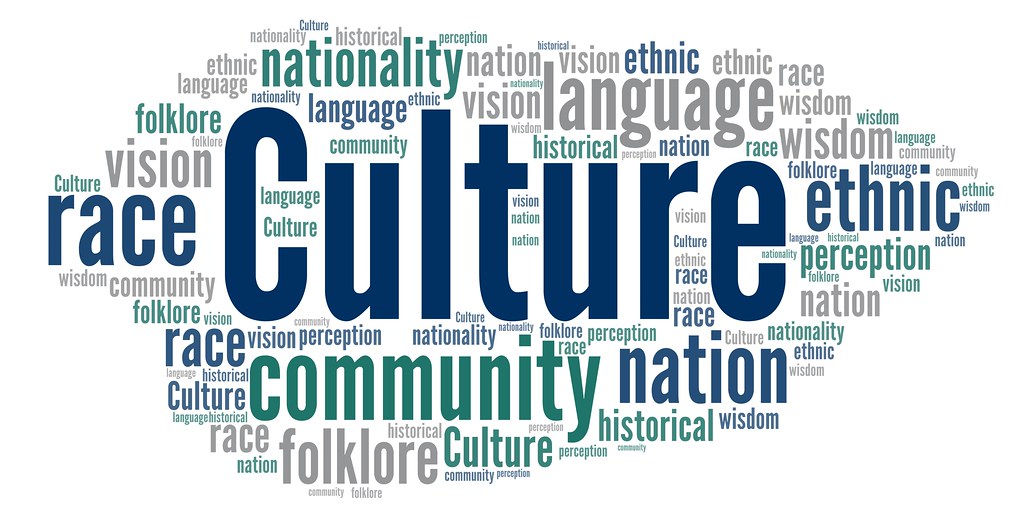The ambiguity of the concept of culture is notorious. Some anthropologists consider culture to be a social behaviour. For others, it is not behaviour at all, but an abstraction from behaviour. To some, stone axes and pottery, dance and music, fashion and style constitute culture; while no material object can be culture to others. One of the oldest definitions of culture was given by the British anthropologist, Sir E.B. Tylor (1832–1917) in the opening lines of his book, Primitive Cultures (1871): “Culture is that complex whole which includes knowledge, belief, art, morals, law, customs, and other capabilities and habits acquired by man as a member of society.”Here are a few more attempts to define culture. American anthropologist Margaret Mead (1901–78) says,” Culture is that learned behaviour of a society or a subgroup.” Raymond Williams (1921–88), one of the founders of cultural studies says, “Culture includes the organization of production, the structure of the family, the structure of institutions which express or govern social relationships, the characteristic forms through which members of the society communicate.” Clifford Geertz (b. 1926), Professor of Social Science at Princeton University of Culture says, “ Culture is simply the ensemble of stories we tell ourselves about ourselves.” On the basis of these definitions, culture seems to be (almost) everything and cultural studies are the study of (almost) everything!
There’s a historical sense, too, in which “culture” is a polemical word. In the nineteenth century, Williams explains, “culture” was often opposed to “civilization.” Civilization, the thinking went, was a homogenizing system of efficient, rational rules, designed to encourage discipline and “progress.” The culture was the opposite: an unpredictable expression of human potential for its own sake. (It’s for this reason that a term like “the culture industry” has an oxymoronic ring.)
In the postwar decades, “culture” was associated with the quest for personal growth: even if you rejected “establishment” culture, you could turn to “the counterculture.” In the eighties, nineties, and aughts, it was a source of pride: the multiculturalist ethos had us identifying with our cultures. But today, “culture” has a furtive, shady, ridiculous aspect. Often, when we attach the word “culture” to something, it’s to suggest that it has a pervasive, pernicious influence (as in “celebrity culture”).
Think of the powerful term “rape culture.” (It was coined a long time ago, in a 1975 documentary film, some call it “a value system in which women are currency, and sex is something that men get—or take—from them.”) The spread of the idea of “rape culture” hasn’t just changed how we think about rape; it’s changed how we think about culture. Among other things, “rape culture” uses the word “culture” in a way that doesn’t involve, on any level, the idea of personal enrichment. Instead, the term’s weight is placed, fully and specifically, on the subterranean, group-defining norms (misogyny, privilege) that encourage violence against women, and on the cultural institutions (movies, fraternities) that propagate those norms. The term works, in part, because of its dissonance. You can’t see the word “culture” next to the word “rape” without revising your ideas about what “culture” means.

Just because cultural studies is practically impossible to define, it does not mean that anything can be cultural studies or cultural studies can be just anything. The history of cultural studies has provided it with certain distinguishable characteristics that can often be identified in terms of what cultural studies aims to do.
1. Cultural studies aims to examine its subject matter in terms of cultural practices and their relation to power. Its constant goal is to expose power relationships and examine how these relationships influence and shape cultural practices.
2. Cultural studies is not simply the study of culture as though it was a discrete entity divorced from its social or political context. Its objective is to understand the culture in all its complex forms and to analyse the social and political context within which it manifests itself.
3. Culture in cultural studies always performs two functions: it is both the object of study and the location of political criticism and action. Cultural studies aim to be both an intellectual and a pragmatic enterprise.
4. Cultural studies attempts to expose and reconcile the division of knowledge to overcome the split between tacit (intuitive knowledge based on local cultures) and objective (so-called universal) forms of knowledge. It assumes a common identity and common interest between the knower and the known, between the observer and what is being observed.
5. Cultural studies is committed to a moral evaluation of modern society and to a radical line of political action. The tradition of cultural studies is not one of value-free scholarship but one committed to social reconstruction by critical political involvement. Thus cultural studies aims to understand and change the structures of dominance everywhere, but in industrial capitalist societies in particular.

In a global multi-media world, it is even more important that all cultures have rights to faithful and respectful representation. But reliable representation and adequate access cannot be gained without struggle. And the ever-increasing tendency on the part of the global networks to speak on behalf of their home base – particularly the USA and Britain – involves the perpetuation of the dominance of the West and subordination of the small, poorer nations. The process that is transforming the world into the proverbial “global village”, rapidly shrinking distances, and compressing space and time, is known as globalization.
Cultural studies started as a dissenting intellectual tradition outside academia, dedicated to exposing power in all its cultural forms. But it has now become a discipline and a part of the academic establishment and its power structure. By being successfully domesticated in the knowledge industry, cultural studies have become too abstract and too technical, divorced from the lives and realities of the people it is supposed to be empowering, and on whose behalf it was to develop strategies for resistance and survival.

Comments